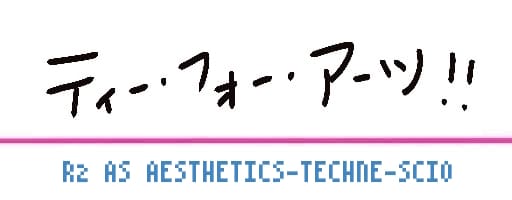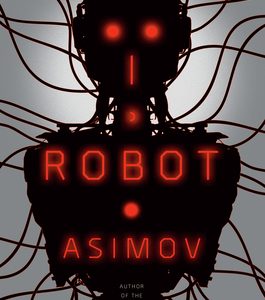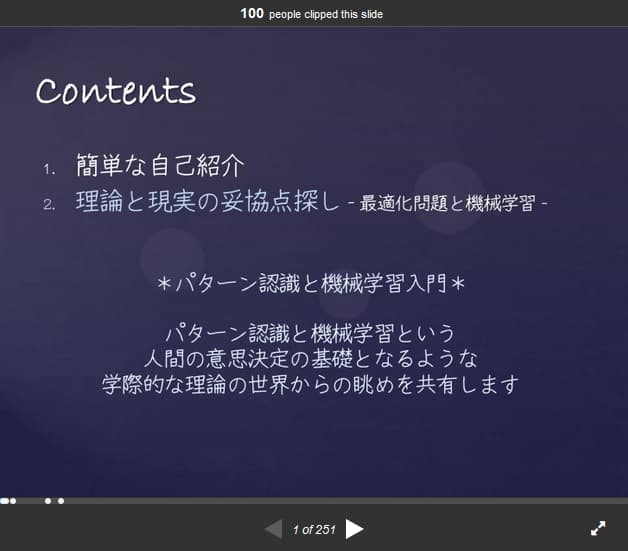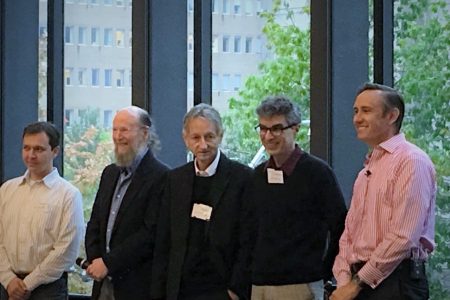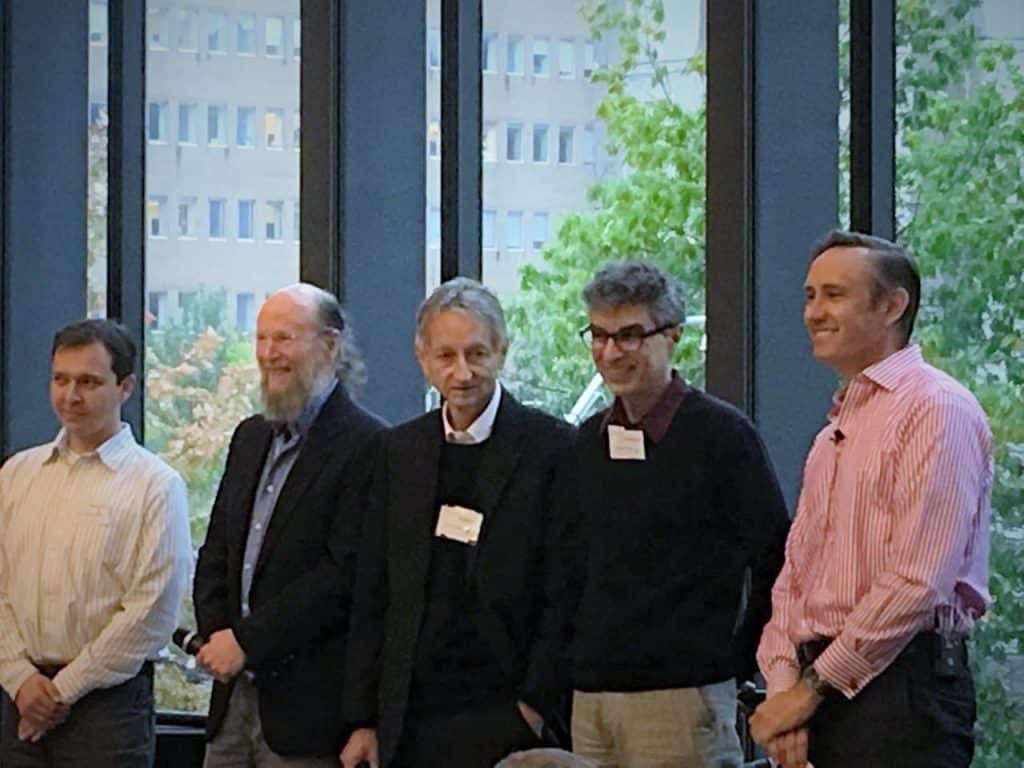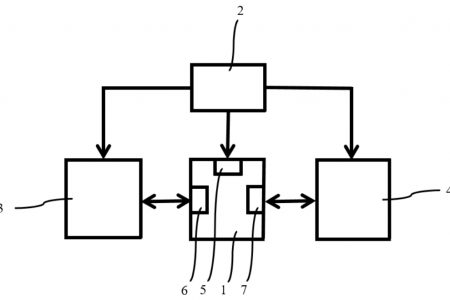“
ON CREATIVITY
by Isaac Asimov, c.1959.
How do people get new ideas?
Presumably, the process of creativity, whatever it is, is essentially the same in all its branches and varieties, so that the evolution of a new art form, a new gadget, a new scientific principle, all involve common factors. We are most interested in the “creation” of a new scientific principle or a new application of an old one, but we can be general here.
One way of investigating the problem is to consider the great ideas of the past and see just how they were generated. Unfortunately, the method of generation is never clear even to the “generators” themselves.
But what if the same earth-shaking idea occurred to two men, simultaneously and independently? Perhaps, the common factors involved would be illuminating. Consider the theory of evolution by natural selection, independently created by Charles Darwin and Alfred Wallace.
There is a great deal in common there. Both traveled to far places, observing strange species of plants and animals and the manner in which they varied from place to place. Both were keenly interested in finding an explanation for this, and both failed until each happened to read Malthus’s “Essay on Population.”
Both then saw how the notion of overpopulation and weeding out (which Malthus had applied to human beings) would fit into the doctrine of evolution by natural selection (if applied to species generally).
Obviously, then, what is needed is not only people with a good background in a particular field, but also people capable of making a connection between item 1 and item 2 which might not ordinarily seem connected.
Undoubtedly in the first half of the 19th century, a great many naturalists had studied the manner in which species were differentiated among themselves. A great many people had read Malthus. Perhaps some both studied species and read Malthus. But what you needed was someone who studied species, read Malthus, and had the ability to make a cross-connection.
That is the crucial point that is the rare characteristic that must be found. Once the cross-connection is made, it becomes obvious. Thomas H. Huxley is supposed to have exclaimed after reading On the Origin of Species, “How stupid of me not to have thought of this.”
But why didn’t he think of it? The history of human thought would make it seem that there is difficulty in thinking of an idea even when all the facts are on the table. Making the cross-connection requires a certain daring. It must, for any cross-connection that does not require daring is performed at once by many and develops not as a “new idea,” but as a mere “corollary of an old idea.”
It is only afterward that a new idea seems reasonable. To begin with, it usually seems unreasonable. It seems the height of unreason to suppose the earth was round instead of flat, or that it moved instead of the sun, or that objects required a force to stop them when in motion, instead of a force to keep them moving, and so on.
A person willing to fly in the face of reason, authority, and common sense must be a person of considerable self-assurance. Since he occurs only rarely, he must seem eccentric (in at least that respect) to the rest of us. A person eccentric in one respect is often eccentric in others.
Consequently, the person who is most likely to get new ideas is a person of good background in the field of interest and one who is unconventional in his habits. (To be a crackpot is not, however, enough in itself.)
Once you have the people you want, the next question is: Do you want to bring them together so that they may discuss the problem mutually, or should you inform each of the problem and allow them to work in isolation?
My feeling is that as far as creativity is concerned, isolation is required. The creative person is, in any case, continually working at it. His mind is shuffling his information at all times, even when he is not conscious of it. (The famous example of Kekule working out the structure of benzene in his sleep is well-known.)
The presence of others can only inhibit this process, since creation is embarrassing. For every new good idea you have, there are a hundred, ten thousand foolish ones, which you naturally do not care to display.
Nevertheless, a meeting of such people may be desirable for reasons other than the act of creation itself.
No two people exactly duplicate each other’s mental stores of items. One person may know A and not B, another may know B and not A, and either knowing A and B, both may get the idea—though not necessarily at once or even soon.
Furthermore, the information may not only be of individual items A and B, but even of combinations such as A-B, which in themselves are not significant. However, if one person mentions the unusual combination of A-B and another the unusual combination A-C, it may well be that the combination A-B-C, which neither has thought of separately, may yield an answer.
It seems to me then that the purpose of cerebration sessions is not to think up new ideas but to educate the participants in facts and fact-combinations, in theories and vagrant thoughts.
But how to persuade creative people to do so? First and foremost, there must be ease, relaxation, and a general sense of permissiveness. The world in general disapproves of creativity, and to be creative in public is particularly bad. Even to speculate in public is rather worrisome. The individuals must, therefore, have the feeling that the others won’t object.
If a single individual present is unsympathetic to the foolishness that would be bound to go on at such a session, the others would freeze. The unsympathetic individual may be a gold mine of information, but the harm he does will more than compensate for that. It seems necessary to me, then, that all people at a session be willing to sound foolish and listen to others sound foolish.
If a single individual present has a much greater reputation than the others, or is more articulate, or has a distinctly more commanding personality, he may well take over the conference and reduce the rest to little more than passive obedience. The individual may himself be extremely useful, but he might as well be put to work solo, for he is neutralizing the rest.
The optimum number of the group would probably not be very high. I should guess that no more than five would be wanted. A larger group might have a larger total supply of information, but there would be the tension of waiting to speak, which can be very frustrating. It would probably be better to have a number of sessions at which the people attending would vary, rather than one session including them all. (This would involve a certain repetition, but even repetition is not in itself undesirable. It is not what people say at these conferences, but what they inspire in each other later on.)
For best purposes, there should be a feeling of informality. Joviality, the use of first names, joking, relaxed kidding are, I think, of the essence—not in themselves, but because they encourage a willingness to be involved in the folly of creativeness. For this purpose I think a meeting in someone’s home or over a dinner table at some restaurant is perhaps more useful than one in a conference room.
Probably more inhibiting than anything else is a feeling of responsibility. The great ideas of the ages have come from people who weren’t paid to have great ideas, but were paid to be teachers or patent clerks or petty officials, or were not paid at all. The great ideas came as side issues.
To feel guilty because one has not earned one’s salary because one has not had a great idea is the surest way, it seems to me, of making it certain that no great idea will come in the next time either.
Yet your company is conducting this cerebration program on government money. To think of congressmen or the general public hearing about scientists fooling around, boondoggling, telling dirty jokes, perhaps, at government expense, is to break into a cold sweat. In fact, the average scientist has enough public conscience not to want to feel he is doing this even if no one finds out.
I would suggest that members at a cerebration session be given sinecure tasks to do—short reports to write, or summaries of their conclusions, or brief answers to suggested problems—and be paid for that, the payment being the fee that would ordinarily be paid for the cerebration session. The cerebration session would then be officially unpaid-for and that, too, would allow considerable relaxation.
I do not think that cerebration sessions can be left unguided. There must be someone in charge who plays a role equivalent to that of a psychoanalyst. A psychoanalyst, as I understand it, by asking the right questions (and except for that interfering as little as possible), gets the patient himself to discuss his past life in such a way as to elicit new understanding of it in his own eyes.
In the same way, a session-arbiter will have to sit there, stirring up the animals, asking the shrewd question, making the necessary comment, bringing them gently back to the point. Since the arbiter will not know which question is shrewd, which comment necessary, and what the point is, his will not be an easy job.
As for “gadgets” designed to elicit creativity, I think these should arise out of the bull sessions themselves. If thoroughly relaxed, free of responsibility, discussing something of interest, and being by nature unconventional, the participants themselves will create devices to stimulate discussion.
”
—
This essay is on public by courtesy of Asimov Holdings.

